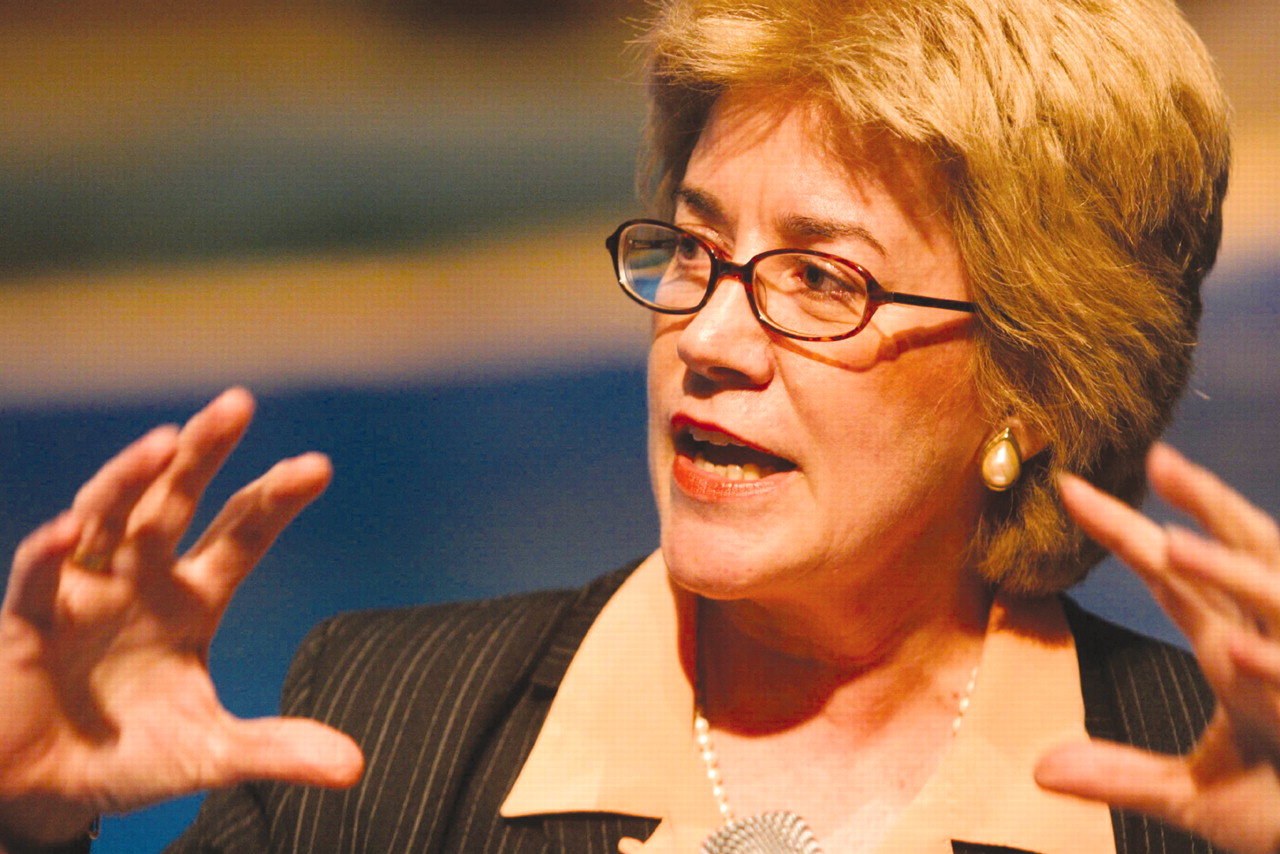CMHS Director Previews Plan To Reform Nation’s MH System

CMHS Director A. Kathryn Power, M.Ed., challenges attendees at an AAGP foundation dinner to “work together to achieve the tipping point in our work to eliminate disparities in mental health care for older adults.”
CMHS’s agenda, she promised, will “describe the first measurable action steps that we, at the federal level, will take over the next year to begin the process of transforming the nation’s mental health system.”
Power made the announcement during an address at a dinner gala sponsored by the Geriatric Mental Health Foundation, held at the Baltimore Aquarium during the annual meeting of the American Association of Geriatric Psychiatry (AAGP). The foundation is the 501(c)(3) charitable arm of the AAGP.
Taking a First Critical Step
The New Freedom Commission’s report, “Achieving the Promise: Transforming Mental Health Care in America,” said Power, “fully embraces the needs of older adults with mental illness.” Many of the recommendations, she noted, address issues that are critical to older Americans, including these:
• The need to reduce the stigma of seeking care.
• The importance of a national strategy for suicide prevention, an issue that is “especially critical when adults 65 and older have the highest suicide rate of any age group.”
• The need to coordinate the array of services and treatments seniors receive into a single plan of care.
• The importance of quality screening in readily accessible, low-stigma settings such as primary care facilities.
While the New Freedom Commission’s report was an important step in building a system that will serve the needs of older adults, she emphasized, the report “is only a first step toward transformation.”
Agenda for Change
“The National Agenda for Action,” Power continued, “will put specifics to the goals and recommendations of the report. It will provide a road map vital for the mental health system transformation, with many more specific highways, intersections, and landmarks that the New Freedom Commission report laid out.”
For example, she said, the agenda sets out eight steps that the federal partners will undertake in the next year to advance the National Action Alliance for Suicide Prevention.
“Most importantly,” she added, “the action agenda will provide a model for what we hope will happen at the state and local levels—a model for the kinds of actions we hope you will work to implement in your practices in your own communities.
“The action agenda is not the end of the work that lies ahead,” she stressed. It is but the beginning of a “five-year arc of transformation strategy building” that has the potential “to alter the face of mental health care in this country for generations to come.”
Limited, Practical Steps
The action agenda represents what Power said are the first, “limited, practical steps.” The federal partners—including all of the components of SAMHSA and its sister research institutes (National Institute of Mental Health, National Institute on Drug Abuse, and National Institute on Alcoholism and Alcohol Abuse)—will be developing a series of agendas that will address additional areas.
Within CMHS, Power said, the agency has formed a new strategic plan that directly responds to “the weighty charge given to us by the commission through its vision, goals, and recommendations.”
Each Individual Is Key
“One of the most important thoughts that I want to leave you with tonight is not about the federal role, it is about the role you play,” Power stressed.
While SAMHSA and its partners can and will provide the resources and leadership to facilitate and encourage the profound changes necessary, she said, “all of you will be the most important agents of change—the agents of transformation.”
To be effective agents of change, Power challenged, “you must be willing to embrace an upheaval and reorganization of what you know, what you do, and what you are used to, because transformation is not accomplished through change on the margin, but through profound changes in behaviors and competencies.”
Invoking science writer Malcolm Gladwell from his book The Tipping Point, Power noted that “the tipping point is ‘that magic moment when an idea crosses a threshold, tips, and spreads like wildfire, the one dramatic moment when the unexpected becomes expected, where radical change is more than a possibility—it is a certainty.’ ”
Power urged those in attendance to “work together to achieve the tipping point. . . to create a new structure, new culture, new polices and programs to create a new age of old that is full of hope and recovery for older Americans.”
The text of Power’s speech is posted online at www.mentalhealth.samhsa.gov/newsroom/speeches/022304.asp. ▪



